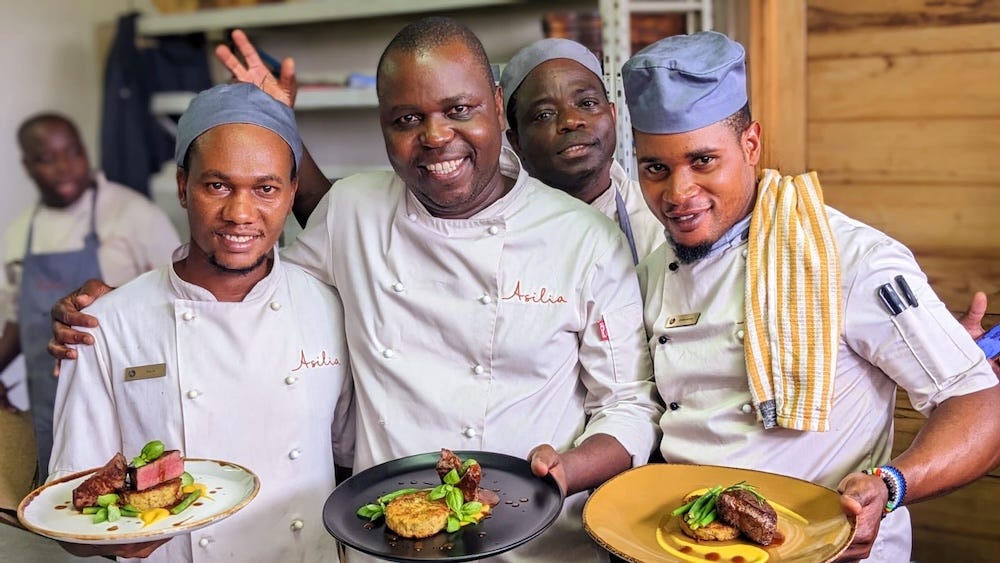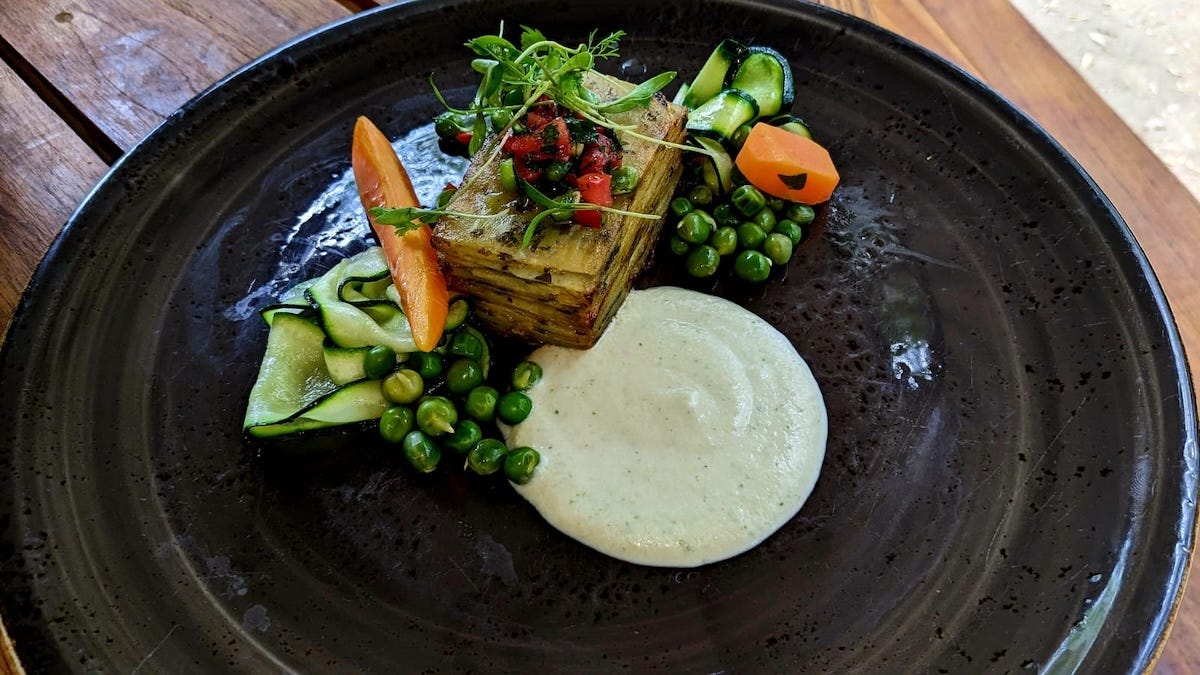An Interview with Asilia Africa’s Regional Chef Trainer, Chef Tonderai
Guided by the women who shaped him, meet the chef who leads with heart, heritage, and fresh ingredients to create unforgettable meals in the wild.
I first met Chef Tonderai (Tondi) back in 2022 on my first trip to Botswana. At the time, Mombo was the camp everyone aspired to work at, known throughout the industry and recognized by Travel + Leisure and Condé Nast Traveler as one of the most elite safari camps in the country.
I will never forget our first wine-paired dinner with Chef Tondi. As someone working in the wine industry, I was excited—Mombo was one of the few camps with a dedicated sommelier, and it felt like the perfect opportunity to experience something elevated. What followed was one of the most impressive meals I’ve had in the bush.
At Wilderness camps, menus are typically set in advance, so a last-minute pairing dinner meant creating something entirely off-script. It was a big ask, but Chef Tonderai delivered with skill, creativity, and warmth. His ability to adapt and curate an exceptional experience left a lasting impression. From a perfectly executed pairing menu—vibrant, thoughtfully plated, and infused with the kind of detail that brings true luxury to the safari experience—to vegan and vegetarian creations like carrot lox that tasted just like traditional salmon, his talent blew me away. And his energy and smile lit up the room.
Today, he brings that same magic to East Africa in his new role as Regional Chef Trainer with Asilia Africa, where he is responsible for mentoring chefs and developing menus across all camps. If you're staying at an Asilia property, you're in for a true culinary journey.
Here’s more from Chef Tonderai himself, his story, his inspirations, and how he crafts dishes that are just as beautiful as they are delicious.
Who inspired you to start cooking, and can you tell us a bit about your background?
My love for food started early in life, growing up in Harare (Zimbabwe), around women who inspired me to cook. My sister, Nyarai Chipfupi, in particular, would bring home tasters from her high school cooking class, which I really relished. My mom was also my role model, making traditional pastries and other comforting meals—my favorite being kapenta, a small fish from Lake Kariba.
My grandmother loved my cooking. I used to visit her during school holidays and cook for her, and she once told me that I would become a great chef one day. At the time, it never dawned on me that it would become my profession.
As a young boy, I became a vegetarian for five years, following my dad’s eating preferences. I started experimenting with a lot of different vegetable dishes, devising new ways of enhancing them. Soon after leaving school, my dad sadly passed away, so I took a leap of faith and headed to South Africa to make a new life.
Was there a mindset or piece of advice you learned early in your cooking journey that has stuck with you throughout your career? Maybe something your mom or a mentor told you?
I learned that cooking is about showcasing different flavors, as I always enjoyed the flavorful dishes my mum used to make. I also learned that cooking comes from the heart, and you have to feel it deep inside. My mum used to tell me to cook with love.
What’s the wildest wildlife story you’ve experienced while working in the kitchen?
Being chased by a bull elephant immediately after exiting the kitchen—I was not aware of its presence.
If someone is visiting a safari lodge in Tanzania for the first time, what dish would you say best represents the local cuisine?
Pilau and coconut beans.
Pilau represents the historical mixing of cultures in Tanzania, particularly the influence of Indian traders who introduced spices and cooking techniques. It’s a common sight at local gatherings, festivals, homes, street food stalls, and hotels, and is often reserved for Friday gatherings, highlighting its cultural significance in Tanzanian tradition.
Ugali is another staple, eaten daily—similar to how pap is enjoyed in Botswana. Both ugali and the ingredients for maharagwe ya nazi (coconut beans) are widely available and affordable, making the dish accessible to people across all income levels. The combination of ugali and beans is a familiar part of Tanzanian culinary life and represents a shared food experience for many.

How do the seasons or local wildlife influence what you cook and serve?
They have a great influence on the quality and freshness of ingredients, so menus should be designed based on what’s in season. When certain fresh produce is out of season, the quality usually deteriorates, which affects the overall dish.
If you could fly or drive anywhere to enjoy a HYPE worthy meal where would it be? (name of restaurant) Meaning it checks all the boxes - hospitality, yum factor, price, environment.
I would go to La Colombe in Cape Town to have a food and wine pairing.
Here is their Instagram.
What is a go-to gluten free recipe you have made?
Gluten-Free Seed Loaf
Yield: 2 loaves
Ingredients:
10 eggs
100g psyllium husk (about 1 cup)
80g flax seeds (about ½ cup)
140g sunflower seeds (about 1 cup)
30g sesame seeds (about 3 tablespoons)
30g pumpkin seeds (about 3 tablespoons)
90g vegetable oil (about ½ cup + 1 tablespoon)
1 teaspoon sugar
10g baking powder (about 2 teaspoons)
10g bicarbonate of soda (baking soda) (about 2 teaspoons)
250ml full-fat milk (about 1 cup)
5g salt (about 1 teaspoon)
Method:
In a large bowl, mix all the ingredients together.
Transfer to two greased bread loaf tins.
Bake at 160°C (320°F) for 55 minutes.
Remove from the oven and let sit for 10 minutes.
Remove the bread from the tins and cool on a wire rack.








